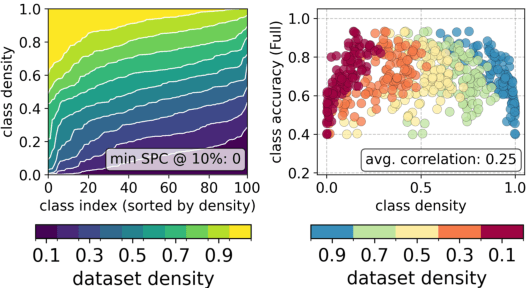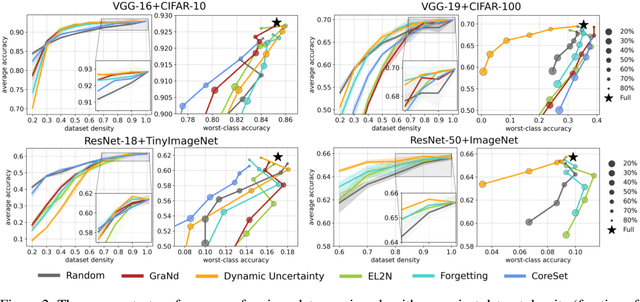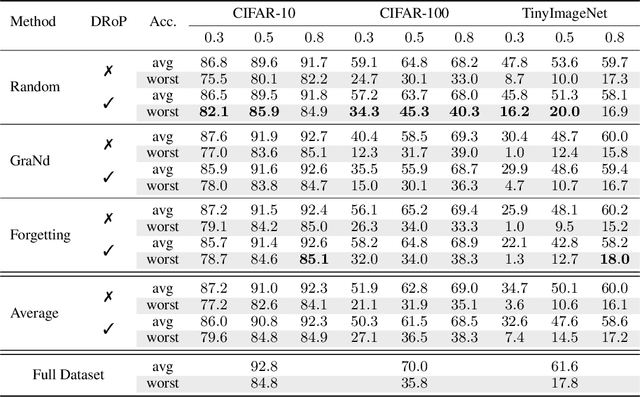Robust Data Pruning: Uncovering and Overcoming Implicit Bias
Paper and Code
Apr 08, 2024



In the era of exceptionally data-hungry models, careful selection of the training data is essential to mitigate the extensive costs of deep learning. Data pruning offers a solution by removing redundant or uninformative samples from the dataset, which yields faster convergence and improved neural scaling laws. However, little is known about its impact on classification bias of the trained models. We conduct the first systematic study of this effect and reveal that existing data pruning algorithms can produce highly biased classifiers. At the same time, we argue that random data pruning with appropriate class ratios has potential to improve the worst-class performance. We propose a "fairness-aware" approach to pruning and empirically demonstrate its performance on standard computer vision benchmarks. In sharp contrast to existing algorithms, our proposed method continues improving robustness at a tolerable drop of average performance as we prune more from the datasets. We present theoretical analysis of the classification risk in a mixture of Gaussians to further motivate our algorithm and support our findings.
 Add to Chrome
Add to Chrome Add to Firefox
Add to Firefox Add to Edge
Add to Edge